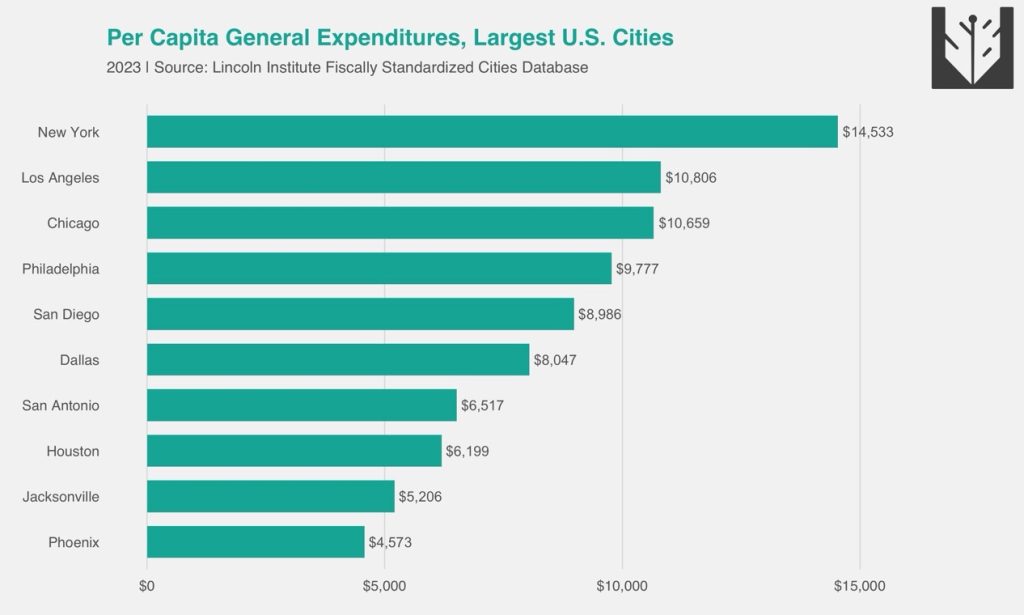“This is a constitutional challenge to the deficiency of the state public finance system for our schools,” said Jeff Mandell, president of Law Forward, the firm representing the plaintiffs. “Despite heroic efforts that have held our schools together for as long as they’ve made it under this deficient funding, it’s not enough. These folks are not magicians.”
The complaint also alleges lawmakers are breaking the law by using taxpayer dollars to pay for private voucher schools while not meeting their constitutional obligation to fund public schools.
……
In the 1999–2000 school year, public schools were funded mostly by the state, 53.7 percent. Local tax dollars funded 41.6 percent and 4.7 percent came from the federal government, according to the complaint.
By 2023–24, the most recent year of available data, that mix had shifted to 45 percent state, 43 percent local, and 12 percent federal.
———

Wisconsin Teachers Unions File Lawsuit to Raise Taxes for “Education.”
Between Evers’s 400-year veto and this new Teachers Union Tax, no one is going to be able to afford a home in Wisconsin. Will Wisconsin courts allow it?
Their argument is completely meritless and falls apart the moment you look at the basic facts.
Wisconsin is funding K-12 education at the highest level in state history—and our scores have only declined.
We’re paying more to educate fewer kids and getting worse outcomes. 🧵
———-
Per-pupil spending is at its highest level since 2000 even after adjusting for inflation, according to data from DPI.
———
This lawsuit is based on a faulty premise. Adjusted for inflation, the state is spending MORE on public schools than a decade ago ($7,693 in ’14 versus $8,361 today). Overall spending has jumped even more to $18,592 per student from $16,820 (1/3).

———
Students in Mississippi & Louisiana score higher on reading tests than students in California & New York despite spending way less money per pupil and having higher child poverty rates.
Decided to double check the data because, if true, this should be alarming for blue state leaders.
———-
Decisions about how to fund schools and in what amount are for the legislature and governor, not the courts. Besides being based on false premises, this is nothing less an attack on our constitution and democracy. All on behalf of powerful special interests. Shame.
———-
———-
1998! Money and school performance.
8,897 (!) Madison 4k to 3rd grade students scored lower than 75% of the students in the national comparison group during the 2024-2025 school year.
Madison taxpayers have long supported far above average (now > $26,000 per student) K-12 tax & spending practices. This, despite long term, disastrous reading results.
Madison Schools: More $, No Accountability
The taxpayer funded Madison School District long used Reading Recovery…
The data clearly indicate that being able to read is not a requirement for graduation at (Madison) East, especially if you are black or Hispanic”
My Question to Wisconsin Governor Tony Evers on Teacher Mulligans and our Disastrous Reading Results
2017: West High Reading Interventionist Teacher’s Remarks to the School Board on Madison’s Disastrous Reading Results
Madison’s taxpayer supported K-12 school district, despite spending far more than most, has long tolerated disastrous reading results.
“An emphasis on adult employment”
Wisconsin Public Policy Forum Madison School District Report[PDF]
WEAC: $1.57 million for Four Wisconsin Senators
Friday Afternoon Veto: Governor Evers Rejects AB446/SB454; an effort to address our long term, disastrous reading results
Booked, but can’t read (Madison): functional literacy, National citizenship and the new face of Dred Scott in the age of mass incarceration.
When A Stands for Average: Students at the UW-Madison School of Education Receive Sky-High Grades. How Smart is That?
Legislative Letter to Jill Underly on Wisconsin Literacy




